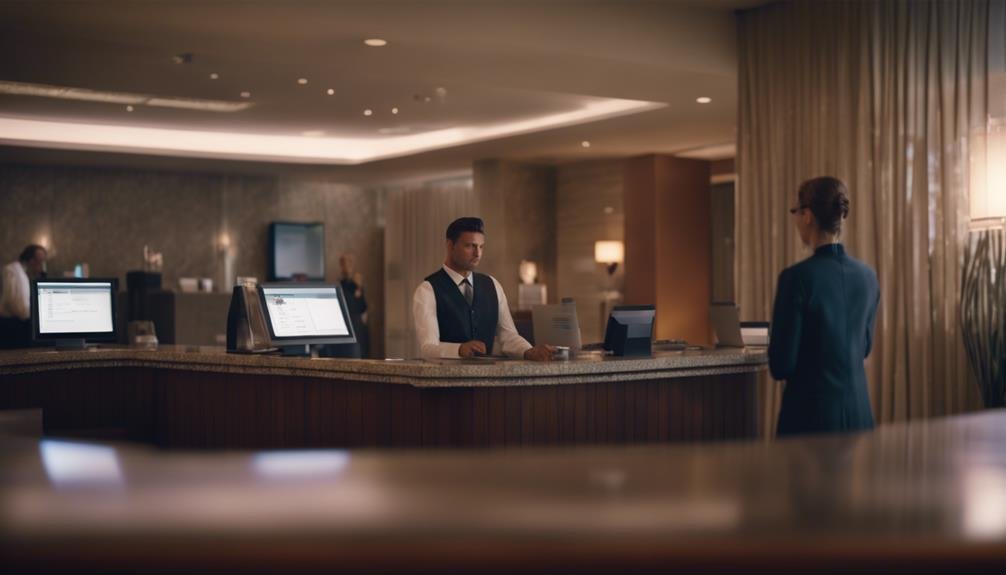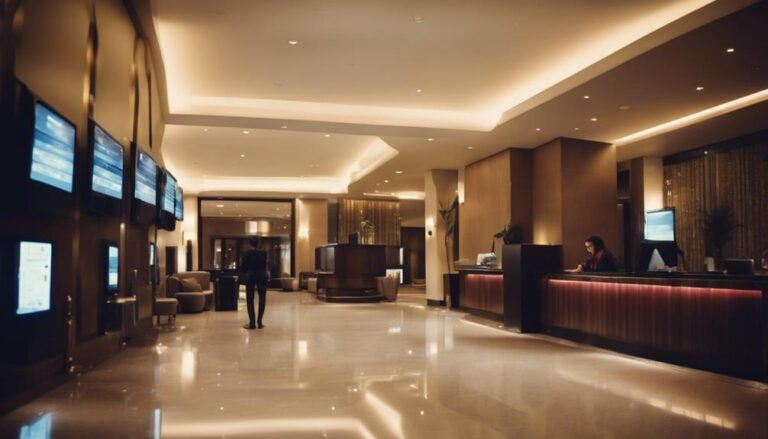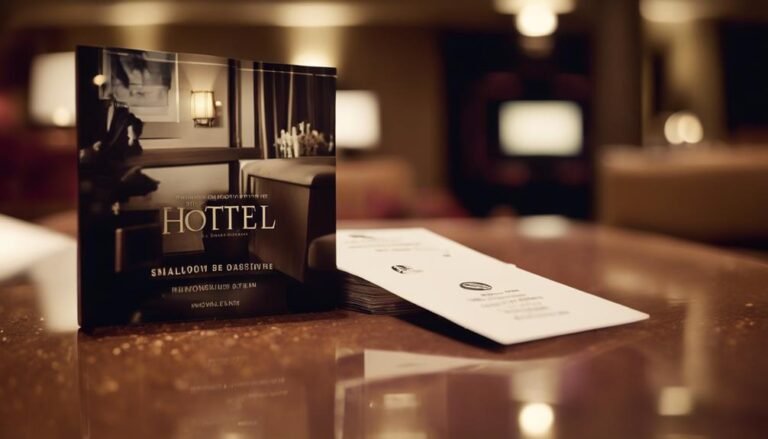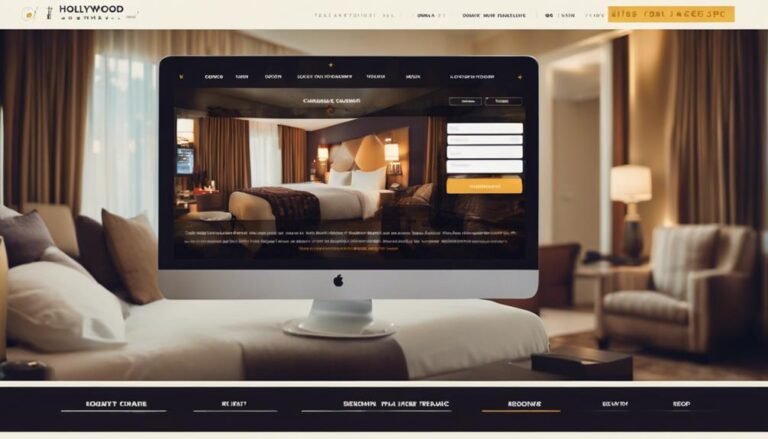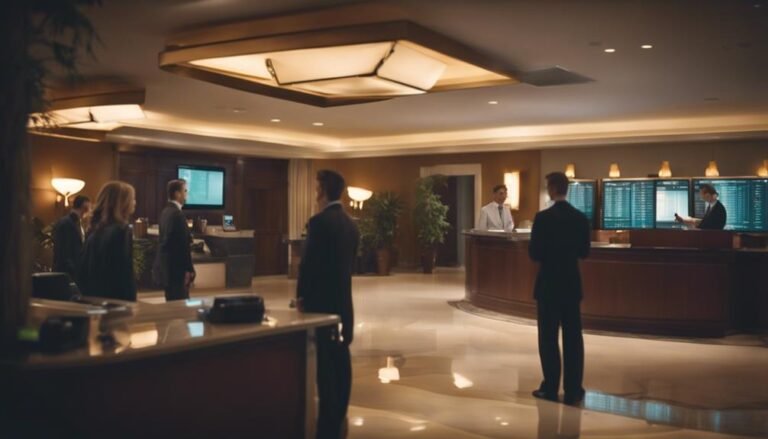Maximizing CRM Strategies in the Hospitality Sector
In the realm of hospitality, maximizing CRM strategies is akin to mastering the art of a well-crafted dish. It requires precision, attention to detail, and a deep understanding of the ingredients at hand.
Imagine the impact of seamlessly tailored guest experiences, pre-empting their desires before they even arise, and ultimately boosting your business's bottom line through effective customer relationship management. The key lies in harnessing these strategies to create a seamless and unforgettable guest journey that goes beyond mere satisfaction.
Let's explore how this intricate balance can transform your hospitality business into a beacon of guest-centric excellence.
Key Takeaways
- Utilize CRM data for personalized guest experiences and revenue growth.
- Anticipate guest needs through data insights for enhanced satisfaction.
- Enhance guest loyalty with tailored services and proactive offerings.
- Drive revenue by leveraging CRM analytics for targeted marketing campaigns.
Importance of CRM in Hospitality
In the competitive landscape of the hospitality industry, embracing Customer Relationship Management (CRM) is pivotal for businesses looking to enhance guest satisfaction and drive revenue growth. Customer loyalty stands as a cornerstone of success in this sector. By utilizing CRM tools effectively, you can gather valuable data on guest preferences, behaviors, and feedback. This data collection empowers you to tailor your services to meet the specific needs and desires of your customers, fostering stronger relationships and repeat visits.
CRM systems enable you to track guest interactions across various touchpoints, allowing you to provide personalized experiences that resonate with individuals on a deeper level. By analyzing the data collected through CRM, you can anticipate guest needs, offer targeted promotions, and deliver exceptional service that cultivates loyalty. This personalized approach not only increases customer satisfaction but also boosts retention rates and ultimately drives revenue growth. In the dynamic realm of hospitality, leveraging CRM for customer loyalty and data-driven decision-making is non-negotiable for staying ahead of the competition.
Personalizing Guest Experiences
To enhance guest satisfaction and drive revenue growth in the hospitality industry, personalizing guest experiences through effective CRM strategies is essential. Tailored communication and customized services play a pivotal role in creating memorable stays for your guests.
Here are three key ways to achieve this:
- Utilize Data Insights: Harness the power of CRM data to understand guest preferences, past behaviors, and feedback. This information can help you tailor your communication and services to meet individual needs effectively.
- Create Personalized Offers: Leverage CRM tools to create personalized offers for guests based on their preferences and behaviors. This targeted approach not only enhances the guest experience but also increases the likelihood of upselling and cross-selling opportunities.
- Implement Feedback Loops: Establish feedback mechanisms within your CRM system to gather real-time insights from guests. Use this feedback to continuously refine and customize your services, ensuring that each guest feels valued and understood.
Anticipating Guest Needs
Harnessing guest data insights allows hospitality businesses to proactively anticipate and exceed guest needs, paving the way for unparalleled personalized experiences. By analyzing guest preferences and behavior patterns, hotels can offer proactive service that goes beyond traditional expectations. For instance, if a guest frequently orders room service breakfast with a particular dietary restriction, the hotel can anticipate this need for future stays, providing a seamless and personalized experience.
Understanding guest preferences through data analytics enables hotels to tailor their services accordingly. By tracking past interactions and feedback, establishments can predict future requirements and preferences, ensuring a customized approach for each guest. This proactive service not only enhances the guest experience but also fosters loyalty and positive reviews.
Furthermore, anticipating guest needs allows hotels to stay ahead of the competition by offering unique and tailored services that cater to individual preferences. By leveraging guest data effectively, hospitality businesses can create memorable experiences that leave a lasting impression on their guests.
Enhancing Guest Satisfaction
By leveraging guest feedback analytics, you can pinpoint areas for improvement to enhance overall guest satisfaction effectively. Improving communication with guests is key to understanding their needs and expectations. By actively listening to feedback and addressing concerns promptly, you can show guests that their opinions matter, leading to increased loyalty.
Utilizing data-driven insights from guest interactions allows you to personalize their experience, creating a memorable stay that fosters loyalty and positive reviews. Here are three key strategies to enhance guest satisfaction:
- Implement real-time feedback mechanisms to address issues promptly.
- Personalize guest experiences based on their preferences and past interactions.
- Train staff to prioritize guest satisfaction and empower them to resolve issues efficiently.
Driving Revenue With CRM
Leveraging CRM strategies effectively can significantly impact revenue generation in the hospitality industry. By utilizing CRM data to understand guest preferences, behaviors, and purchase history, you can tailor personalized offers that drive revenue growth. Increasing guest loyalty through targeted marketing campaigns based on CRM insights can result in repeat bookings and higher customer lifetime value.
Optimizing marketing efforts with CRM allows you to segment your audience effectively. By sending the right message to the right guest at the right time, you can enhance engagement and conversion rates. For instance, sending exclusive promotions to loyal customers through email campaigns can encourage them to book directly with your hotel, bypassing third-party booking platforms and increasing revenue.
Furthermore, CRM systems provide valuable analytics that enable you to track the effectiveness of your marketing strategies. By measuring key performance indicators such as customer acquisition costs and return on investment, you can refine your marketing campaigns for better results and increased revenue.
Conclusion
In conclusion, maximizing CRM strategies in the hospitality sector is essential for creating personalized guest experiences, anticipating their needs, and ultimately driving revenue.
For example, a luxury hotel chain implemented a CRM system that allowed them to track guest preferences and offer tailored services, resulting in a 20% increase in repeat bookings.
By harnessing the power of CRM, hospitality businesses can enhance guest satisfaction and stay ahead in a highly competitive industry.

